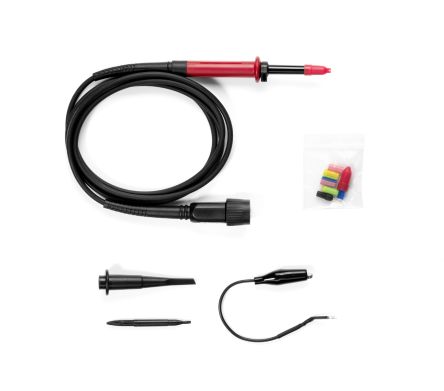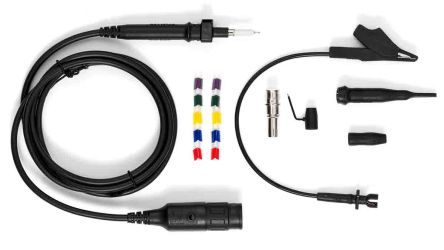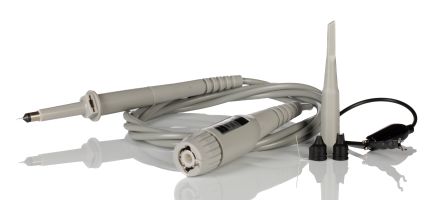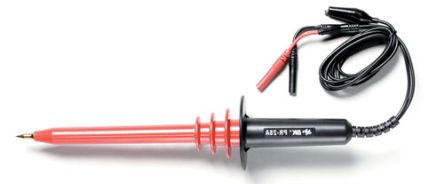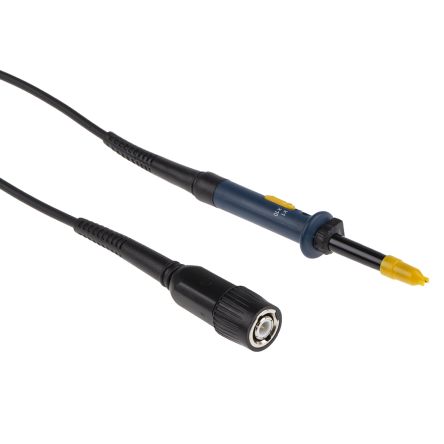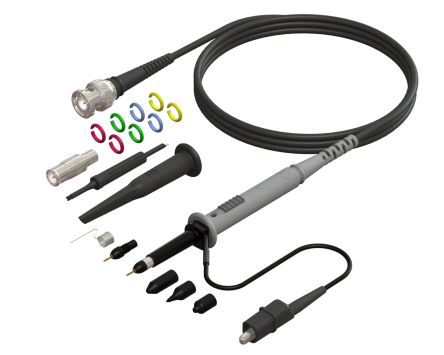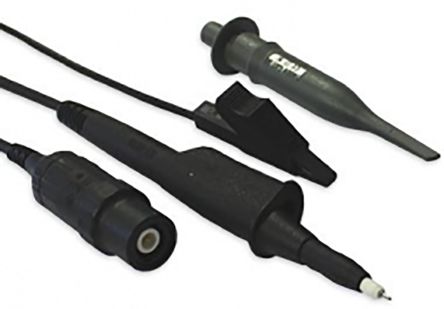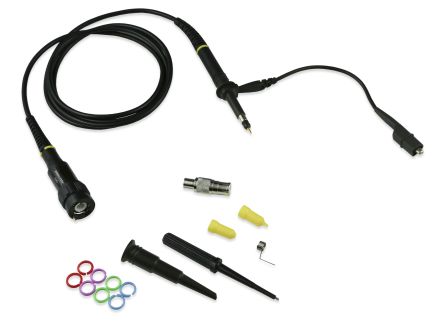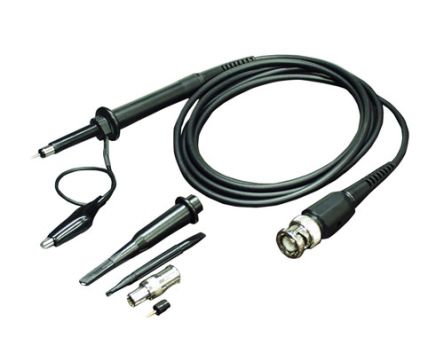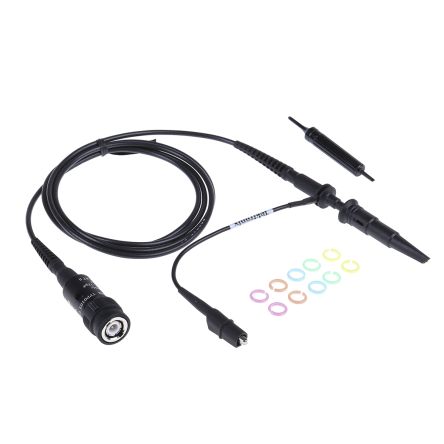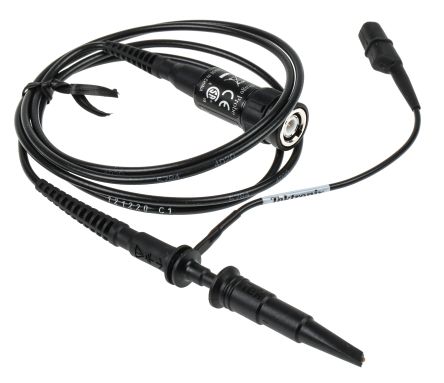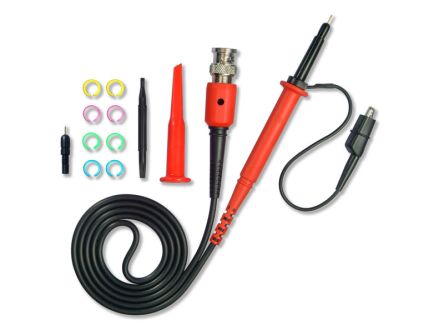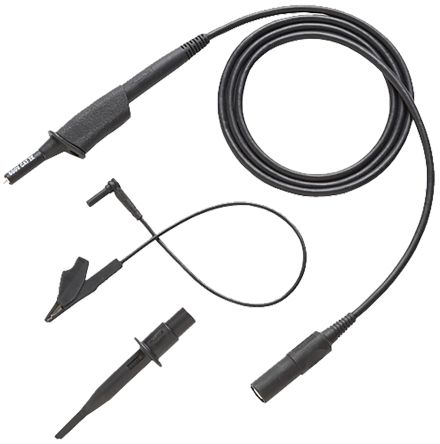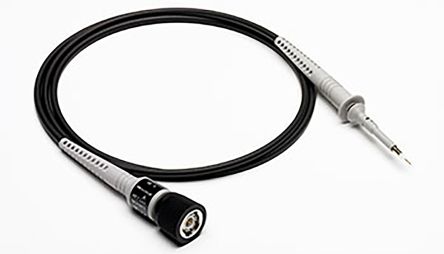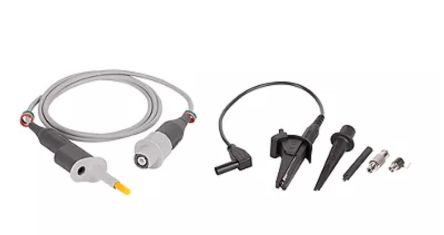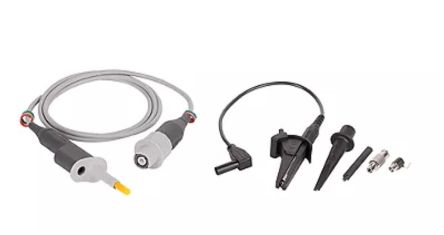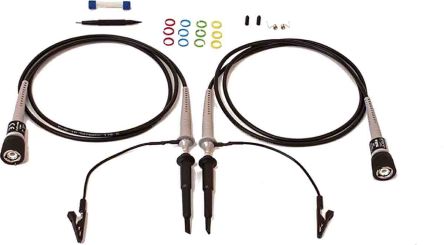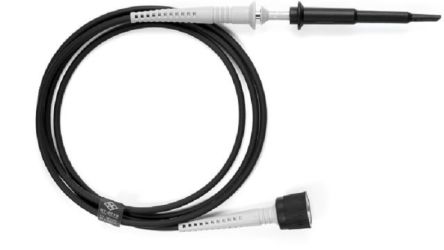- Automation & Control Gear
- Cables & Wires
- Enclosures & Server Racks
- Fuses & Circuit Breakers
- HVAC, Fans & Thermal Management
- Lighting
- Relays & Signal Conditioning
- Switches
- Batteries & Chargers
- Connectors
- Displays & Optoelectronics
- ESD Control, Cleanroom & PCB Prototyping
- Passive Components
- Power Supplies & Transformers
- Raspberry Pi, Arduino, ROCK, STEM Education & Development Tools
- Semiconductors
Oscilloscope Probes
Oscilloscope probes are a type of device commonly used by electrical engineers that can connect a signal source to an oscilloscope. The probe is a single input device that can divert the electrical signal to the scope. Oscilloscope probes can be used in various applications and can range from a simple wire like a passive probe to a more complex device.
An oscilloscope is considered to be the most used instrument for electrical engineers who need to measure electrical characteristics of electronic devices but you also need at least one probe.
Things to consider when choosing probes
- Ensure the probe's input connector matches the connector on your scope
- Choose a probe whose input resistance and capacitance match the input resistance and capacitance of your scope - matching is critical for guaranteeing proper signal transfer and signal accuracy
The best approach, for matching a probe with a scope, is to first choose a probe whose capacitance is within the range of your scope and then fine-tune the probe's capacitance by adjusting its compensation network using the probe's trimmer capacitor.
The 1X probes are suitable for many low frequency applications. They typically offer the same input impedance of the oscilloscope which is normally 1 M Ohm. The most common type of probe with a built in attenuator gives an attenuation of ten, and it is known as a 10X oscilloscope probe.
Types of probes
Passive probes are the most commonly used probes for taking measurements. They are easy to use, relatively inexpensive, and fairly rugged. Available in the following configurations:
- 1x: no attenuation
- 10x: factor-of-10 attenuation
- 100x: factor-of-100 attenuation
- 1000x: factor-of-1000 attenuation
Attenuation probes serve to multiply the voltage measurement range of the oscilloscope by using an internal resistor that, when used in conjunction with the input resistance of the scope, creates a voltage divider. Useful for the following reasons:
- It allows for the measurement of a signal that might exceed the limits of the oscilloscope
- The attenuation circuitry results in higher resistance and lower capacitance, which is important for high-frequency measurements
Active probes contain active components, such as FETs or amplifiers. Commonly used for taking high-speed measurements (>500 MHz) or on high-impedance circuits. One limitation is their limited voltage range.
Differential probes are popular for measuring high-frequency signals or signals of very low amplitude.
A current probe measures the electrical current flowing through a conductor.
Tips:
- Always use an appropriate probe tip and/or probe tip adapter whenever possible
- Keep ground leads short

